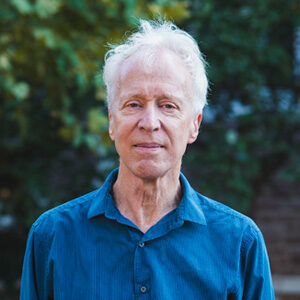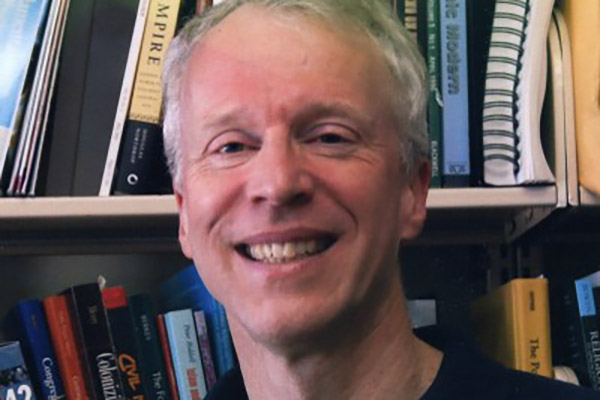Bowen’s research explores broad social transformations now taking place in the world-wide Muslim community, including special emphasis on Muslim life in Indonesia, the world’s largest Muslim nation. His research focuses on the role of cultural forms (religious practices, aesthetic genres, legal discourse) in processes of social change.

John Bowen
Professor Emeritus of Sociocultural Anthropology, Dunbar-Van Cleve Professor in Arts & Sciences
Contact Information
- Phone: 314-935-5680
- Email: jbowen@wustl.edu
- Website: Website
Media Contact
In the media
U.N. criticizes French move to bar Olympians from wearing headscarves
John Bowen, the Dunbar-Van Cleve Professor in Arts & Sciences
What Does Europe Have Against Halal?
Food is becoming a target for anti-Islam politics in Europe, writes John Bowen, professor of sociocultural anthropology.
The Specter of Catholic Identity in Secular France
John Bowen, the Dunbar-Van Cleve Professor of Anthropology
France’s ‘Burkini’ Bans Are About More Than Religion or Clothing
John Bowen, the Dunbar-Van Cleve Professor of Anthropology
Stories
Bowen selected a Carnegie Scholar
John Bowen, a sociocultural anthropologist and the Dunbar-Van Cleve Professor in Arts & Sciences at Washington University in St. Louis, has been named a 2016 Carnegie Scholar by the Carnegie Corp. of New York.
‘Religion in the Public Sphere’ forum April 25
The intersection of religious belief with reproductive rights, environmental concerns, foreign policy and other global issues will be among topics discussed as Washington University in St. Louis and the Pulitzer Center on Crisis Reporting host a daylong public forum Monday, April 25.
John Bowen receives global citizenship award
John Bowen, a sociocultural anthropologist and the Dunbar-Van Cleve Professor in Arts & Sciences at Washington University in St. Louis, received the Dr. Jean Mayer Global Citizenship Award from Tufts University’s Institute for Global Leadership as part of a symposium on “Europe in Turmoil,” held at Tufts Feb.17-21.
Wash U Expert: Charlie Hebdo terror attack feeds on centuries-old tensions
The secular, anti-immigration and Islamophobic divisions now gripping France have their roots in the nation’s 200-year history of close interaction with Algeria and its strong 19th century tradition of opposing organized religion of any form, suggests John R. Bowen, PhD, a sociocultural anthropologist at Washington University in St. Louis who has written four books on Islam’s interaction with Western societies.
Bowen selected for prestigious Guggenheim Fellowship
John R. Bowen, PhD, a sociocultural anthropologist at Washington University in St. Louis, has been selected for a prestigious fellowship from the John Simon Guggenheim Memorial Foundation. Bowen, the Dunbar-Van Cleve Professor in Arts & Sciences, was among the 181 Guggenheim Fellows chosen in 2012 from nearly 3,000 scholars, artists and scientists in the United States and Canada.
9/11 impact was less in Europe, says WUSTL anthropologist
Because the Sept. 11 attacks happened on U.S. soil, it makes sense that they might have had a more profound impact in the United States than in Western Europe. But key differences in how Muslims were perceived before 9/11 in the United States and Western Europe also played a key role in how much — or how little — attitudes on Muslims changed after 9/11, says John R. Bowen, PhD, an anthropology and religious studies professor, both in Arts & Sciences, at WUSTL.
French ban veils
The French senate approved a law Sept. 14 banning any veils that cover the face, making France the first European country to nationally impose such a ban. A WUSTL anthropologist who has written extensively on this subject says that the French government is finding it easier to fight clothing than to fight poverty and violence.
Why the French government banned headscarves in schools
Explaining “why the French don’t like headscarves” in public schools.March will mark the third anniversary of a law passed by the French government banning from public schools all clothing that indicates a student’s religious affiliation. Though written in a religion-neutral way, most people in France, and around the world, knew the law was aimed at keeping Muslim girls from wearing headscarves to class. But why? John R. Bowen, Ph.D., a sociocultural anthropologist in Arts & Sciences at Washington University in St. Louis, was in France at the time and has written an enlightening book, recently published by Princeton University Press, titled “Why the French Don’t Like Headscarves: Islam, the State and Public Space.” More…
Washington University’s John Bowen one of 16 nationwide selected a Carnegie Scholar
John R. Bowen, Ph.D., the Dunbar-Van Cleve Professor in Arts & Sciences at Washington University in St. Louis, has been named a 2005 Carnegie Scholar by the Carnegie Corp. of New York. Bowen, who also is chair and professor of Social Thought and Analysis in Arts & Sciences, is one of 16 scholars nationwide selected in this highly competitive fellowship program.
Aceh province can rebuild, but United States needs to assist volunteer groups, says Indonesian expert
John Bowen doing fieldwork in Sumatra, Indonesia, in the late 1970s.Despite suffering large loss of life and devastation of cities and villages from the 9.0 magnitude earthquake and ensuing tsunami, Aceh province in Indonesia can rebuild. And at the same time, the United States can burnish its image among Indonesians — tarnished over the invasion of Iraq — by supporting Indonesian volunteer groups in the rebuilding process, says a sociocultural anthropologist at Washington University in St. Louis who lived in Aceh for five years and has studied its people and culture since 1978.
Inequalities in schools and neighborhoods focus of daylong conference Feb. 27
Social inequalities in schools and neighborhoods will be addressed by leading national scholars as well as prominent local scholars, experts and activists during a daylong conference Feb. 27 at Washington University. WUSTL’s Program in Social Thought & Analysis (STA) in Arts & Sciences is sponsoring the conference, titled “Inequalities in Schools & Neighborhoods: St. Louis and Beyond.”


